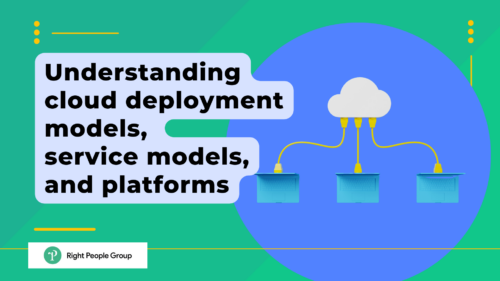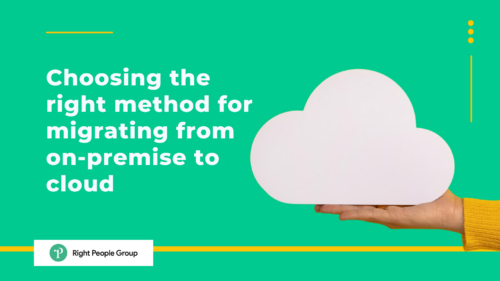As more businesses move their operations to the cloud, the selection of the right cloud service provider becomes increasingly critical. Choosing the ideal cloud provider is a crucial decision that can have long-term consequences on a company’s success. With an abundance of cloud providers offering various cloud computing services in the market, it can be overwhelming for businesses to select the right one.
In this article, we will explore the five key considerations that every business must keep in mind when choosing the ideal cloud service provider.
Security and compliance
One of the most crucial considerations for selecting the right cloud service provider is security and compliance. Data breaches have become a common occurrence, and businesses must take the necessary precautions to ensure the safety of their data. When choosing a cloud service provider, you must ensure that they have the appropriate security measures in place to prevent unauthorized access and data theft.
Data encryption and access control mechanisms
To ensure security on your cloud platform, it’s essential to verify that your cloud services provider implements data encryption protocols. Encryption makes data unreadable, and only authorized users can read it. This means that even if a hacker gains access to the data, they won’t be able to read it. Additionally, you must also verify that the provider uses access control mechanisms to prevent unauthorized access to your data. This allows you to restrict access to certain individuals or groups.
Disaster recovery and backup
Another essential security consideration for your private cloud is disaster recovery and backup. Businesses can never be too sure when their data will be compromised. Cloud service providers must have a disaster recovery plan to restore data and services in the event of an outage. This ensures that your data and services will be up and running in no time, even after an unfortunate event. Besides, it’s necessary to verify that the provider has backup mechanisms in place to ensure your data is available whenever you need it.
Compliance with regulations
Compliance is also critical when selecting a cloud service provider. Companies must comply with various regulations such as GDPR, HIPAA, and PCI. Failing to comply with these regulations can lead to hefty fines and legal action. When choosing a cloud service provider, you must ensure that they comply with these regulations. You can achieve this by requesting compliance reports and certifications from the provider.
Tired of sifting through resumes? Let us help you find expert cloud solution specialists that is the perfect match for your business needs.
Scalability and flexibility
Scalability and flexibility are crucial when selecting a cloud service provider. Scalability ensures that your cloud environment can accommodate your business’s growing needs, allowing you to scale up or down depending on demand. A cloud service provider must offer sufficient storage and bandwidth for your operations to ensure that your business can grow without limitations.
Another important scalability consideration is network availability. The provider must ensure that your cloud environment is always available and can handle a significant amount of traffic. Cloud service providers such as Amazon Web Services (AWS) and Google Cloud have a wide geographic reach, ensuring that your cloud environment is available to your remote teams.
Flexibility is another essential consideration when selecting a cloud service provider. Your business’s cloud environment must be flexible enough to accommodate your operations and workflows. The provider must offer customization and integration options to ensure that your cloud environment aligns with your business requirements. The Google Cloud platform, Amazon Web Services (AWS), Microsoft Azure, IBM Cloud, and Oracle Cloud offer numerous customization options to help you tailor your cloud environment to your business needs.
Flexible pricing and billing models are a critical aspect of cloud service providers. Providers that offer pay-as-you-go options can help businesses manage their costs effectively. Additionally, it’s essential for businesses to have the flexibility to change their cloud service package as their needs change, allowing them to adapt to market changes quickly. Some examples of pricing models include pay-as-you-go, pay upfront, and tiered pricing models based on usage or resource allocation.
Accelerate your cloud journey with the right expert. Explore our network and find the best Microsoft Azure, Oracle Cloud, or any other cloud specialist to suit your business needs.
Support and service level agreements
When selecting a cloud service provider for hybrid cloud solutions, support and service level agreements (SLAs) are critical considerations. The chosen provider must offer high-quality support to ensure that the computing resources in your cloud environment operate smoothly. This includes having different support channels and responsive, 24/7 support staff who are experienced and certified in the operating system and cloud infrastructure.
In addition to support, SLAs must guarantee uptime, performance, and response time for the cloud environment. The provider should provide service credits and penalties in case they fail to meet the SLA requirements. It’s crucial to carefully evaluate the SLAs offered by different providers to ensure that they align with your business’s needs and expectations. By considering these factors, businesses can select a reliable cloud service provider that offers the necessary support and SLAs for their hybrid cloud environment.
Total cost of ownership
When selecting a cloud service provider, businesses must consider the total cost of ownership (TCO). The TCO is the sum of all the direct and indirect costs of using a cloud service provider. Direct costs include subscription fees, setup fees, and usage fees. Indirect costs include training costs, migration costs, and integration costs.
It’s necessary to consider both the direct and indirect costs of using a cloud service provider. A provider may have low subscription fees, but the indirect costs may be high. For instance, you may need to train your employees on how to use the cloud environment, and this may be expensive. Additionally, you may need to integrate the cloud environment with your existing infrastructure, and this may also be costly.
The provider must be transparent about their pricing and billing models to help businesses calculate their TCO accurately. Besides, the provider must provide tools and resources to help businesses optimize their costs.
Vendor lock-in
Vendor lock-in refers to a situation where a business becomes dependent on a particular vendor’s products or services, making it difficult or expensive to switch to an alternative vendor. In the context of cloud computing, vendor lock-in can occur when a business chooses a cloud service provider and becomes dependent on that provider’s tools, technologies, and infrastructure. If the business needs to switch to another cloud service provider, it may face technical or contractual barriers that can be difficult and costly to overcome. Avoiding vendor lock-in is an important consideration for businesses when selecting a cloud service provider.
To avoid vendor lock-in, businesses can take the following steps:
Choose a cloud service provider that uses open standards and APIs. This allows businesses to integrate their cloud environment with other systems seamlessly, and switch to another provider if the current provider fails to meet their needs.
Ensure that the cloud environment is compatible with multiple providers. This means that the business can move its applications and data to another provider with minimal disruption.
Use standard tools and interfaces when developing applications. This ensures that the applications can run on different cloud environments, and the business can move them easily if necessary.
Avoid using proprietary tools and technologies that are specific to a particular vendor. This reduces the dependency on the vendor’s tools and makes it easier to switch to another provider if needed.
Conclusion
Selecting the right cloud service provider is a critical decision that can have long-term consequences on your company’s success. Security and compliance, scalability and flexibility, support and service level agreements, total cost of ownership, and vendor lock-in are the five key considerations that every business must keep in mind when choosing the ideal cloud service provider.
To ensure that you select the right provider, it’s necessary to conduct thorough research and evaluate multiple providers. Additionally, it’s necessary to involve your IT team and other stakeholders in the decision-making process. By keeping these considerations in mind, businesses can choose the ideal cloud service provider and enjoy the benefits of cloud computing.












